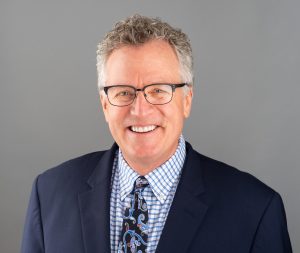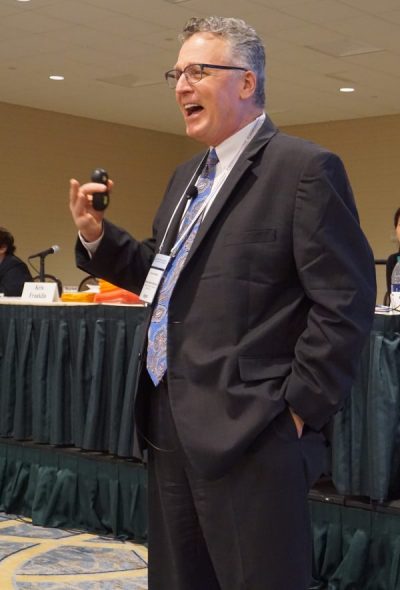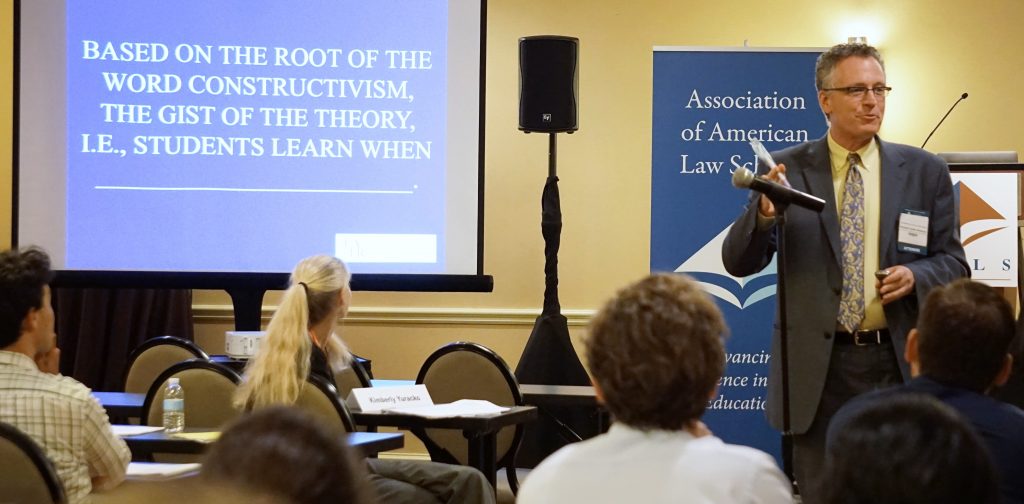Faculty Perspectives is an ongoing series in which AALS presents authored opinion articles from law faculty on a variety of issues important to legal education and the legal profession. Opinions expressed here are not necessarily the opinions of the Association of American Law Schools. If you would like to contribute to Faculty Perspectives or would like to offer a response to the opinion published here, contact AALS.
 Michael Hunter Schwartz, Dean of McGeorge School of Law.
Michael Hunter Schwartz, Dean of McGeorge School of Law.
By Michael Hunter Schwartz, Dean, University of the Pacific, McGeorge School of Law
A few months ago, Professor Nancy Levit (University of Missouri, Kansas City), Gerry Hess (Gonzaga), and I published “Fifty Ways to Promote Teaching and Learning” in the Journal of Legal Education (JLE). Both the title and substance of our essay was a purposeful parallel to James Lindgren’s excellent “Fifty Ways to Promote Scholarship,” also published in the JLE. Recently, a colleague asked me if we intended, by our essay, to suggest the existence of a competition between promoting scholarship and promoting teaching. My answer is an emphatic no. Instead, I view the choice between excellent teaching and research as a false one.
Because I suspect others may have had the same response to the “Fifty Ways” essays, I am taking this opportunity to elaborate on why I reject the notion of a conflict between excellent teaching and excellent research. My goal with this essay is to argue that law professors can and do walk and chew gum at the same time.
Some believe that research interferes with teaching. Certainly, there are great scholars who knowingly come to class unprepared or whose teaching practice is more ad-lib dressed up as free wheeling Socratic questioning than thoughtful instructional design. (I am also certain, by the way, that some folks do little scholarship and are uninspired and uninspiring teachers as well.) The crux of the scholarship skeptics’ argument is that research takes time, and the time spent on research could be used preparing for class. Scholarship skeptics also have argued that the intellectual level of the best research is inapposite to a typical survey class for legal novices.
Many others of us are convinced that that research enhances teaching. It is common for productive scholars to assert that “my research informs my teaching.” The crux of this argument is that productive scholars’ better understanding enables them to better explain difficult concepts and ensures that the professors are preparing their classes based on the most current understandings in the field.
As for me, I like to start with data. Studies show a significant correlation between both scholarly productivity and scholarly quality, on the one hand, and higher student evaluations, on the other hand. The argument is also supported by my 2013 book, What the Best Law Teachers Do. Many of the most effective law teachers we studied, including Heather Gerken (Yale), Nancy Levit (UMKC), Hiroshi Motomura (UCLA), Julie Nice (University of San Francisco), and Paula Franzese (Seton Hall) are also leading scholars in their fields, and most of their tenure-line colleagues in What the Best Law Teachers Do are successful and respected scholars.
The correlation studies are persuasive evidence, but they are not enough for me. I am reminded that increases in the murder rate are correlated with sales of ice cream. I guess it is possible that murderers cause people to buy ice cream right before they commit their heinous acts. It is also possible, I guess, that purchasing ice cream causes people to want to kill each other; I never choose a non-chocolate flavor, so I leave ice cream parlors quite disinclined to kill. I personally favor the hypothesis that a confounding variable, hot weather, is at play in this correlation.
I believe that, like the correlation between ice cream and murder, a confounding variable is at play in the correlation between excellence as a scholar and good teaching evaluations. That confounding variable is engagement. My belief is that productive scholars on average get good student evaluations because they are engaged in their jobs as law professors.
I believe their research informs their teaching because they choose to allow their deep knowledge to assist them in finding new ways to reach the students where they are.
 Dean Schwartz presents at an AALS Section on Teaching Methods session at the 2019 AALS Annual Meeting.
Dean Schwartz presents at an AALS Section on Teaching Methods session at the 2019 AALS Annual Meeting.
This brings me to the nub of my argument that the legal academy should continue to promote both scholarly excellence and great teaching. Great scholarship can and often does lead to great teaching. The unanswered and unresearched question is why. I have a few hypotheses.
To begin with, I suspect that, for some great scholars, their intellectual life as scholars keeps them excited about their fields. A universal trait among the people we studied for What the Best Law Teachers Do was their enthusiasm for the subjects they teach. Their enthusiasm inspired their students to study harder so they could learn for themselves what was so exciting about their professors’ fields. Great scholars, by being engaged in their fields so deeply, may be more likely to possess that enthusiasm. To this day, I recall my own excitement when I read Douglas Laycock’s wonderful monograph, Death of the Irreparable Injury Rule. I was excited by the idea that I would have to teach my students to argue as if the rule were alive and to argue that it is or is not dead.
In addition, professorial expertise does translate into student learning. The students of the people we studied for What the Best Law Teachers Do listed, among other things, their professors’ expertise in their fields and seemingly endless repertoire of ways of helping students learn difficult concepts. Because great scholars tend to read everything in their fields, they are more able to find multiple ways of helping their students learn. For example, students in Phil Prygoski’s (Cooley) Constitutional Law class marveled at the value and insight he added by having read all the cases that cited the Constitutional Law cases he taught.
One of the most important lessons I learned in studying the teachers we featured in the book is that all are known for their high expectations of students; many are known as challenging teachers who administer particularly hard exams. Great scholars, with their focus on rigor in thinking and research, may be more likely to expect excellence from their students. For example, when we studied Heather Gerken’s teaching, her students reported that, when a student offered a particularly good insight, Professor Gerken would respond by encouraging the student to consider co-authoring a paper developing that insight. By treating her students like colleagues in this way, Gerken communicated both types of high expectations: an expectation that her students were capable of performing at the level of an experienced Yale Law School professor, and a challenge that they do so.
Another important way scholarship improves teaching is that the depth of research and analysis required for excellent scholarship is a close proxy for the depth of research and analysis required in law practice. Law school exams, like the bar exam, are mile-wide-inch-deep affairs; given the time constraints, we really cannot expect our students to develop creative, in-depth arguments. This fact creates a risk that students will assume that such superficial understanding and analysis is sufficient for practice; if so, their professors’ deep research offers a strong rebuttal to that assumption.
 Dean Schwartz during a plenary session on learning theory at the 2016 AALS Workshop for New Law Teachers.
Dean Schwartz during a plenary session on learning theory at the 2016 AALS Workshop for New Law Teachers.
Professor Julie Nice, an accomplished scholar and Best Law Teachers subject, has found a way to take this insight to its logical and most inspiring conclusion in her Constitutional Law class. Every year, she requires her students, as a collective, to undertake an in-depth study and charting of rationales and analyses of the lower courts that have decided a Constitutional issue that has not yet been decided by the U.S. Supreme Court. During the year when we studied Professor Nice’s teaching, she had her students do such an analysis of the many marital equality cases (pre-Obergefell). In this way, she used the skills and knowledge she developed as a scholar to help her students experience the depth of research and analysis they will need to deploy in practice.
At least some great scholars go much further to enhance their teaching. They approach the teaching process with a scholarly eye; they use studies of teaching and learning to inform their teaching choices. I know great scholars who are just as adept at citing authority to justify their teaching choices as they are at citing authority to support the arguments in their scholarly papers. From among the people we studied in What the Best law Teachers Do, Bridget Crawford (Pace), Roberto Corrada (Denver), and Paula Lustbader (Seattle University) are good examples.
It is worth noting that some of the law teachers we studied for the book either were never required to publish at all or cannot be characterized as active scholars today. These great law teachers are great because they are so engaged in helping their students learn. While they may not publish, they do stay current in their fields. In other words, they are great because of their engagement with the teaching part of their jobs, because they commit time and energy to both their fields and the teaching craft.
Thus, great teaching and great scholarship are all about engagement. In “Fifty Ways to Promote Scholarship,” Professor Lindgren’s suggestion 46 argued for adding additional teaching awards, suggestion 47 recommended distributing summary statistics from the students’ student evaluations of faculty teaching, and suggestion 48 recommended holding faculty development sessions focused on teaching. I am therefore certain Professor Lindgren would agree that the suggestion that we must choose between promoting teaching and promoting research offers a false choice.